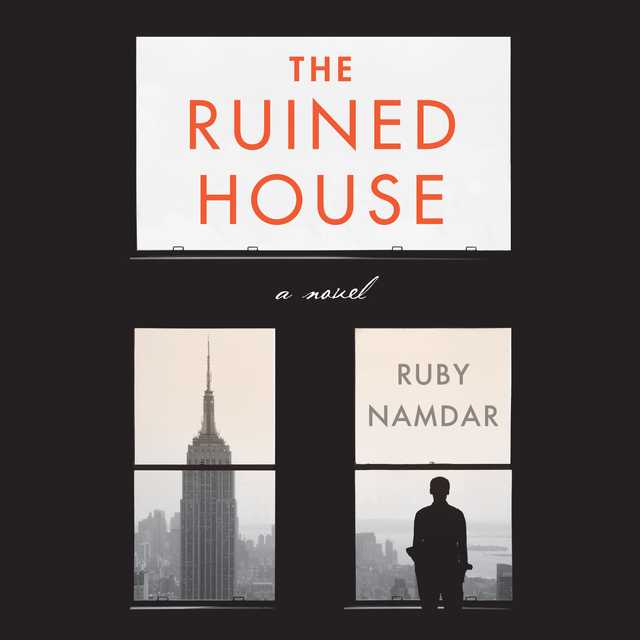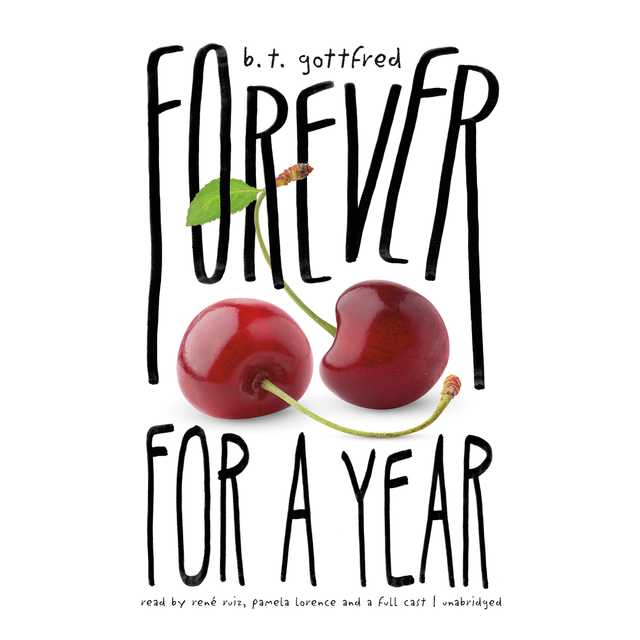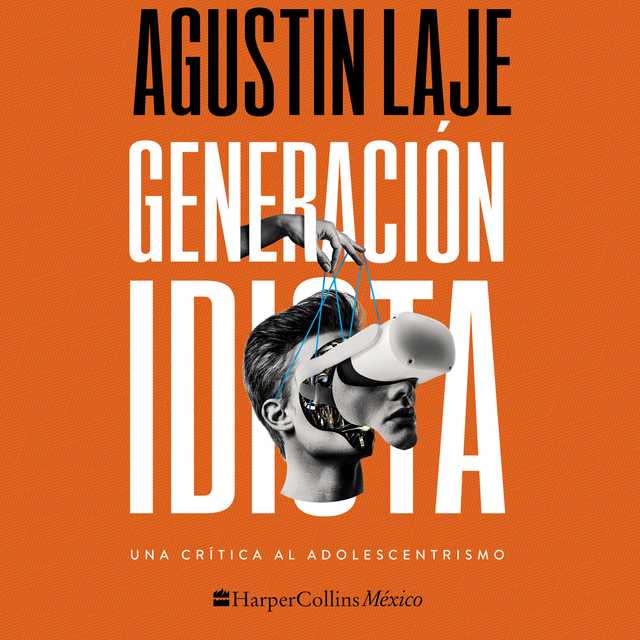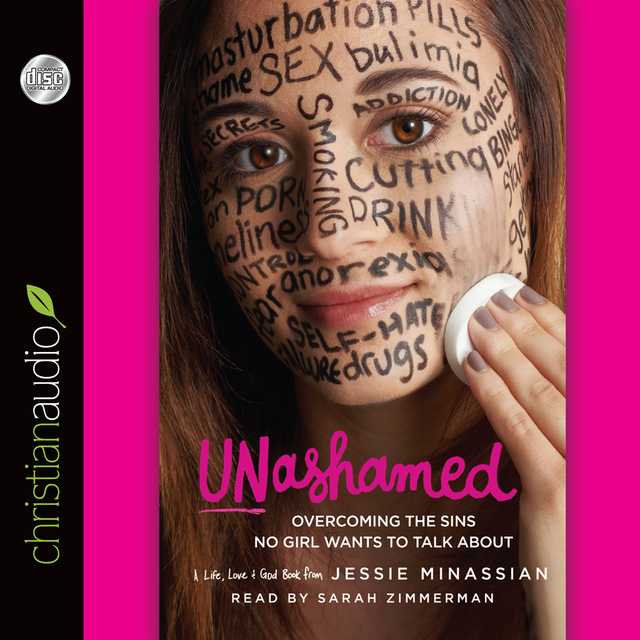The Ruined House Audiobook Summary
“In The Ruined House a ‘small harmless modicum of vanity’ turns into an apocalyptic bonfire. Shot through with humor and mystery and insight, Ruby Namdar’s wonderful first novel examines how the real and the unreal merge. It’s a daring study of madness, masculinity, myth-making and the human fragility that emerges in the mix.”
–Colum McCann, National Book Award-winning author of Let the Great World Spin
Winner of the Sapir Prize, Israel’s highest literary award
Picking up the mantle of legendary authors such as Saul Bellow and Philip Roth, an exquisite literary talent makes his debut with a nuanced and provocative tale of materialism, tradition, faith, and the search for meaning in contemporary American life.
Andrew P. Cohen, a professor of comparative culture at New York University, is at the zenith of his life. Adored by his classes and published in prestigious literary magazines, he is about to receive a coveted promotion–the crowning achievement of an enviable career. He is on excellent terms with Linda, his ex-wife, and his two grown children admire and adore him. His girlfriend, Ann Lee, a former student half his age, offers lively companionship. A man of elevated taste, education, and culture, he is a model of urbanity and success.
But the manicured surface of his world begins to crack when he is visited by a series of strange and inexplicable visions involving an ancient religious ritual that will upend his comfortable life.
Beautiful, mesmerizing, and unsettling, The Ruined House unfolds over the course of one year, as Andrew’s world unravels and he is forced to question all his beliefs. Ruby Namdar’s brilliant novel embraces the themes of the American Jewish literary canon as it captures the privilege and pedantry of New York intellectual life in the opening years of the twenty-first century.
Other Top Audiobooks
The Ruined House Audiobook Narrator
Paul Boehmer is the narrator of The Ruined House audiobook that was written by Ruby Namdar
Ruby Namdar was born and raised in Jerusalem to a family of Iranian-Jewish heritage. His first book, Haviv (2000), won the Israeli Ministry of Culture’s Award for Best First Publication. The Ruined House won the 2014 Sapir Prize–Israel’s most important literary award. He currently lives in New York City with his wife and two daughters, and teaches Jewish literature, focusing on biblical and Talmudic narrative.
About the Author(s) of The Ruined House
Ruby Namdar is the author of The Ruined House
More From the Same
- Publisher : HarperAudio
- Abraham
- American Gods [TV Tie-In]
- Dead Ringer
- House of Sand and Fog
- Prey
The Ruined House Full Details
| Narrator | Paul Boehmer |
| Length | 21 hours 6 minutes |
| Author | Ruby Namdar |
| Publisher | HarperAudio |
| Release date | November 07, 2017 |
| ISBN | 9780062791122 |
Additional info
The publisher of the The Ruined House is HarperAudio. The imprint is HarperAudio. It is supplied by HarperAudio. The ISBN-13 is 9780062791122.
Global Availability
This book is only available in the United States.
Goodreads Reviews
Laurie
July 31, 2017
Middle-aged academic Andrew Cohen has it all; his girlfriend is half his age, his academic reputations is great, he has flawless style. He and his ex get along; he has a good relationship with his daughters; his students love him; his girlfriend asks nothing of him. He’s got everything designed and choreographed. Everything he has is the best quality. No human frailty stirs the still surface of his life. Until it does. Little things start going wrong. He gets ill. He gets dirty. He develops a paunch. His girlfriend and ex both get cranky. The article he is writing just won’t gel, no matter how many tries he makes at it. He even takes delivery of a nine pound piece of tenderloin that looks like an uncircumcised penis and he sees as some albatross he can’t get rid of. He starts to have powerful visions that leave him shaken to the core. The surface of his life- and he’s all surface, he’s not real with anyone- is not just rippled but shattered. It’s a story about a midlife crisis. It’s also a story about academic life. But is it a story about mystical visions, as the sections between chapters (pseudo Talmudic pages) hint at (he is a Cohen, after all, and the visions have a priest possibly making a terrible mistake during a ritual), or is he having a nervous breakdown or even a psychotic break? Whatever it is, it takes a hard toll on him, and help is a long time coming. The isolation of modern people is another theme in the book. The writing is very nice, but the book is slow going. I really couldn’t work up much care for Andrew, although I did find myself compelled to keep reading to find out what the devil was happening to him. The other characters have no depth to them at all; we never see them except in relation to Andrew. It’s like they just stop existing when not in contact with him. It’s an odd book; I didn’t particularly enjoy it while I was reading, but in the end I *did* feel it was good, as I think about it and tease bits of it out from the mass of prose. It’s grown on me. Four stars out of five.
Dee Dee
September 08, 2017
Ruined House is an excellent debut that balances internal struggles, religion, and isolation within contemporary life with lush language and delightful dialogue. What I loved most about the novel is the intersection of religion and modern-day identity crisis. The novel is divided into seven sections; each are prefaced by parts of the Talmud. Each preface sets the reader up for the upcoming chapter and has subtle nods throughout the preceding passages. As a Harvard Divinity School graduate, I love when authors explore the intersection of religion and identity; religion is deeply entrenched in who we are, whether we acknowledge this presence or not-- the map is never the territory. While Andrew has led a largely secular life, it is fascinating to go through his journey of learning and confronting the inherent, religious part of his self.At the heart of academic religious discourse, one must privilege another's religious experience, no matter how uncomfortable or strange this may seem to the outside party. When Andrew starts seeing visions of ancient Jews performing and celebrating rituals, it helps as a reader to take these visions at face value; it makes for a great ride throughout the book. The descriptions of Jewish mysticism, both noetic and ineffable, made my heart sing.Like any existential crisis, this novel piles up slowly. Give this book time! It can be slow moving, but that is the beauty of the book. You get to revel in the loveliness of the prose, while questioning Andrew P. Cohen's character and journey. I highly suggest this book for fans of Nicole Krauss and Philip Roth. A side note: as a language-nerd, the translation from Hebrew into English is beautifully done.
Nell
November 21, 2017
Engrossing, feverish and uncomfortable, Namdar draws us into perfect Andrew's middle aged, fragile psyche with deft skill and a thrumming sort of prose that has an incredible elegance even in it's most painful and explosive moments.
Phil
December 12, 2017
Four and one-half stars. I was loving this book until the last few dozen pages. I felt Namdar missed an opportunity with Cohen's identity with the Second Temple Kohen, the smoke enveloping the City on the 8th of Av, etc. I felt the dénouement gave Cohen a pass, to sink back into his spiritually emptiness.And I wonder: Who were this book's intended audiences? Secular NYC intellectual Literati are Jewishly illiterate. Can Observant Jews fathom the depths and layers of satire that are Cohen's world? As it was written in Hebrew, who did Israeli readers make of it? Then there was the typical Israeli tempest in a teapot: Should an Israeli not residing in Israel be eligible for a literary prize, never mind the Sapir Prize, Israel's version of the National Book Award.Halkin's translation is brilliant, capturing the many historical layers of Modern Hebrew. Biblical, postbiblical, rabbinic, and colloquial all "rub their elbows and shoulders."My knowledge of Hebrew is more than adequate, but I wish I had the Sprachgefühl to appreciate Namdar's linguistic and literary richness.
Cindie
February 02, 2018
I have no idea if that was the most pretentious or most brilliant novel I have ever read...but I was riveted. Not for the faint of heart...
Brett
February 06, 2018
What a book. The Ruined House is a complex, allegorical, deeply powerful story about the relationship between ancient faith and the agony and ecstasy of modern life. Throughout the course of reading this book, I remained thoroughly under Ruby Namdar's grasp, pausing after every chapter to excitedly ponder its deep implications and lying awake at night to decipher the book's hidden truths. If I had to describe this book by comparison, I'd liken it to a cross between American Psycho and a Tale of Love and Darkness, taking Ellis's talent for portraying unreliable narration and the profound triumphs and despairs of modern life and mixing it with the stirring sexual and religious revelations of Oz's work. The writing style of this book was incredible. From page 1, I found the book an easy page-turner while also engrossing me in the vivid descriptions, powerful emotional content, and sophisticated allusions. With motifs such as Oedipal desire, Yeats's The Second Coming, and the uncircumcised penis, the book constantly leaves you grasping at the connections between each component of the book; it's like the literary version of a movie such as Inception. If anything was to dampen my appreciation of the book, it'd be my perception of Namdar's ultimate theme, or thesis. While I can't claim to truly understand his motivations, as this book was particularly complex and subjective, I suspect that Namdar sought to illustrate the following: whether we know it or not, our cultural history and faith define us in powerful, yet often unseen ways. Even beyond that, it is essential that we, in the course of our own lives, never dwell on our own power or magnificence, and instead always focus on what matters: family, love, belonging, and both religious and nonreligious faith. Particularly toward the end of the book, I worried that he would focus on an overly orthodox religious conclusion or leave Cohen in a state of permanent displacement, but the book's conclusion alleviated my fears while confirming what I believe to be an excellent, powerful, and completely true theme.Along those lines, I found this book deeply relatable. As a generally nonreligious person of Jewish descent, with even the same thread of the "Cohen" name, much of Andrew's religious background was remarkably similar to my own. By the same token, Andrew's inability to escape the cultural legacy of his Jewishness, even when immersed in a thoroughly atheistic, materialistic New York society, matches a sense that I've had in my own life, that perhaps my distant Jewishness defines me in some unknown way. Perhaps my relatives were also truly ancient priests or proud Israelites. I don't want to get to into my own life, but to me, this proves that this book strikes powerfully at what it really means to be of Jewish heritage in the modern world.As a final note, I particularly enjoyed the Jewish religious allegory featured as frequent interlude. The story, though I'm not sure of its real existence, is notably backed by dense, but powerful lines of Jewish doctrine, and the story serves as a mysterious, yet effective allegory of Andrew's own story. It's an interesting idea, framed in an interesting way, and it helped me to connect the religious line of the story with the material.I don't mean to be a reviewer who spends all day espousing every good thing about a book without ever mentioning the bad, so I'll say what I didn't like. It can be a difficult book to read, since each chapter is so dense in information and symbolism. Most of the last "book" or two focused on a plot development that I found excess, rather like the final parts of American Psycho. Most importantly, I think Namdar's intense focus on the Jewish faith, and its connection to ancient beliefs even in the modern realms of sexuality or circumcision, can be controversial and alienating to many people. It's a difficult topic to truly process and accept. Finally, as a general note, the book is in many parts quite vulgar, which I found strikingly realistic but may alienate others.My review is probably too glowing, but the fact of the matter is that I loved this book. One of the most intellectually challenging, remarkably relatable, and generally engrossing books that I've read in a long time.
Stephen
February 26, 2018
Andrew P. Cohen, the central character of this novel, is leading a charmed life. He holds a position of Comparative Literature at NYU, where he is esteemed by all, has received an ample inheritance from his father to supplement his full professor salary, is a brilliant cook and the center of a lively group of friends, and is in the midst of an affair with a beautiful woman half his age. In pursuing a happy, successful life, he has left much behind—most significantly, his wife and two daughters and, for the most part, his Jewish heritage. Quite unexpectedly, dreams and visions, many deeply distressing, begin to intrude into his consciousness and eventually undermine entirely his sense of self-satisfaction. It is as if patterns from the deep historical past are seeping into his life and literally turning him upside down. For those of us who worry whether the past is really past—and not just our personal past but that of our heritage as well—this is a powerful and disturbing read. Does it go too far, as some critics have suggested? Yes. Some of the sexualized violence, at least in this reader’s opinion, does seem excessive and gratuitous, but that is only a minor criticism. The overall impact of Namdar’s novel can be overwhelming, at least for those of us who have left much behind and wonder if it will stay there.
David
December 01, 2017
My review will appears in New York Journal of Books.
Naomi
April 24, 2019
I gave this book 4 stars, but am ambivalent about whether to recommend it to anyone. I read it, knowing it was a winner of the Sapir award in Israel, and after hearing the author speak. Although I loved the author's nuanced persepctive and style of speaking, which was densely filled with ideas, I can't say that I loved this book. It was EXTREMELY dense, and at times, I felt like I couldn't stand to read one more sentence about the agony the main character was experiencing. But I persisted--and I'm actually glad that I did. As the reviewer in the NYT said, the book is a masterpiece, just not to be lightly recommended.
Ralph
March 22, 2018
I enjoyed this book very much, but I wonder what sense it would make to someone who isn't steeped in Jewish religion and culture. The book is chock full of it, from the central symbol (the Second Temple in Jerusalem -- the ruined House -- and the World Trade Center) to amusing anecdotes (a dinner of quail served on quail eggs referring to the incident of the quail during the wandering in the desert. But maybe the story of Andrew Cohen is moving on its own terms, without understanding the references? I don't know. But I enjoyed it.
Abby
December 24, 2017
The author is an Israel living in NYC. This book won Israel's Sapir prize for books written in Hebrew and prompted the prize committee to restrict the prize in future years to Israelis residing in Israel. Is this an Israeli book? It's the existential crisis of an Upper West Side Jewish man and does have a particularistic feel. But the story could have been placed in Tel Aviv with a professor from TAU. The advantage of locating the story in NYC was that the author didn't have to deal with Israeli/ Palestinian issues. fascinating book - somewhat dense.
Jeannette
March 03, 2019
NYU professor of comparative culture Andrew P. Cohen, 52, is at the peak of a charmed life. A popular professor, he's certain of getting an prestigious appointment in the fall; has an amicable relationship with his ex-wife and two daughters; has an exciting and discreet relationship with his 26-year old Chinese-American girlfriend; and is frequently published in the New Yorker.Then he starts having these -- episodes, shall we say. The first begins as quietly as a moment of poignancy. In time, they become full-fledged cinematic scenes from the days when the Jewish Temple still existed. Of course, Cohen, a one-a-year Jew, has no context for these visions. Over the course of the year the book takes place, these visions become nightmares that cost him his sleep, his career forces him into a harsh confrontation with self; his ex-wife moves on with her life and his girlfriend grows up and wants commitment.Author Ruby Namdar described the book in an interview with Forward reporter Beth Kissileff as "a Jewish American tale told only the way an Israeli could tell it."I found the writing gorgeous and the story telling thought-provoking. Namdar has a gift for making the magical real and the real magical.
Tribblemaker
July 24, 2018
This is a powerful book, which I couldn't put down. It was also a hard book to read. It brought out all my paranoid and self-hating tendencies and robbed me of my ability to interact successfully with coworkers, friends, and family during the days I was reading it. It made me both lethargic and slightly insomniac, even before these twin curses were fully visited on the main character of the book. It wasn't just like reading someone's living nightmare; it made my world a living nightmare. The main character is essentially a successful asshole, of a type I'd rather not believe myself to be, but I still felt keenly his hellish waking dreams because they were things I'd experienced before, and the writing brought them fully to the front of my mind again. Despite not wanting to empathise with the main character, I couldn't help but do so.The prose is amazing. I am curious what it's like in Hebrew, that it was translated so beautifully into English.If you've experience dissociating from your life, or any tendencies toward paranoia and self-hate, maybe give this book a miss.
Judy
March 23, 2018
IF there were more stars on this rating I would add them to the 5 stars. This is a superb book tho I doubt that is a universal view as it has a certain focus that is not comfortable or interesting for many people. This is about a man in his prime who falls yet it is not so black and white. Extremely well written by a very intelligent man Ruby Namdar he writes bout a man who begins to examine himself. It happens also thru his constant nightmarish dreaming. A man with what appears on the surface as in an ideal life at age of 52 with a very young woman his own home in NYC daughters an ex wife with whom he is "friendly" a full professorship at NYU (New York U) and an appointment to a directorship at a new division of the university and a trainer at Equinox gym a gourmet cook and a sought after writer on philosophical culture topics. A jewish man who has no jewish connection. What could go wrong here?In The Ruined House you follow this man Andrew or Andy Cohen for one full year and it ends on September 11thAs you read this it swirls as does his life...Judy
Gerald
September 13, 2018
Brilliantly conceived. Andrew Cohen, a professor of comparative culture at N.Y.U., has his world--successful and vain as he's been--crash when he encounters strange, violent visions that arise from the ancient Jewish past. Interspersed with the narrative of Cohen's gradual breakdown (the most vivid description of a mental breakdown I've ever read) are Talmudic texts full of details of the rituals the High Priest must perform perfectly or forgiveness of sins will not take place. Difficult, troubling, and beautifully written. Don't undertake this one if you're looking for light reading, but do plunge into this unique blend of the present and the distant past if you want to think about deep realities in your own life and in the world at large.
Susan
December 01, 2017
Andrew Cohen is a professor at NY University. He and his ex-wife Linda have two grown children. He has a girlfriend Ann Lee who is half his age. They all get along wonderfully. Andrew was living a successful life and career which is about to be up-rooted as he begins having mesmerizing visions of an ancient religious ritual. For which he must search for answers. THANKYOU GOODREADS FOR THIS FREE BOOK!!!!!
Harvey
January 15, 2023
a bipolar Jewish bookFrom mania to depression, from 2001 NYC to 70CE Jerusalem, from contemporary fiction to Talmudic, Torah , Kabbalah texts.A skillful translation of an American Roth like novel written by an Israeli American author it doesn’t fail to interest you in the hidden meaning ,messages and mishigas.
Frequently asked questions
Listening to audiobooks not only easy, it is also very convenient. You can listen to audiobooks on almost every device. From your laptop to your smart phone or even a smart speaker like Apple HomePod or even Alexa. Here’s how you can get started listening to audiobooks.
- 1. Download your favorite audiobook app such as Speechify.
- 2. Sign up for an account.
- 3. Browse the library for the best audiobooks and select the first one for free
- 4. Download the audiobook file to your device
- 5. Open the Speechify audiobook app and select the audiobook you want to listen to.
- 6. Adjust the playback speed and other settings to your preference.
- 7. Press play and enjoy!
While you can listen to the bestsellers on almost any device, and preferences may vary, generally smart phones are offer the most convenience factor. You could be working out, grocery shopping, or even watching your dog in the dog park on a Saturday morning.
However, most audiobook apps work across multiple devices so you can pick up that riveting new Stephen King book you started at the dog park, back on your laptop when you get back home.
Speechify is one of the best apps for audiobooks. The pricing structure is the most competitive in the market and the app is easy to use. It features the best sellers and award winning authors. Listen to your favorite books or discover new ones and listen to real voice actors read to you. Getting started is easy, the first book is free.
Research showcasing the brain health benefits of reading on a regular basis is wide-ranging and undeniable. However, research comparing the benefits of reading vs listening is much more sparse. According to professor of psychology and author Dr. Kristen Willeumier, though, there is good reason to believe that the reading experience provided by audiobooks offers many of the same brain benefits as reading a physical book.
Audiobooks are recordings of books that are read aloud by a professional voice actor. The recordings are typically available for purchase and download in digital formats such as MP3, WMA, or AAC. They can also be streamed from online services like Speechify, Audible, AppleBooks, or Spotify.
You simply download the app onto your smart phone, create your account, and in Speechify, you can choose your first book, from our vast library of best-sellers and classics, to read for free.
Audiobooks, like real books can add up over time. Here’s where you can listen to audiobooks for free. Speechify let’s you read your first best seller for free. Apart from that, we have a vast selection of free audiobooks that you can enjoy. Get the same rich experience no matter if the book was free or not.
It depends. Yes, there are free audiobooks and paid audiobooks. Speechify offers a blend of both!
It varies. The easiest way depends on a few things. The app and service you use, which device, and platform. Speechify is the easiest way to listen to audiobooks. Downloading the app is quick. It is not a large app and does not eat up space on your iPhone or Android device.
Listening to audiobooks on your smart phone, with Speechify, is the easiest way to listen to audiobooks.






























